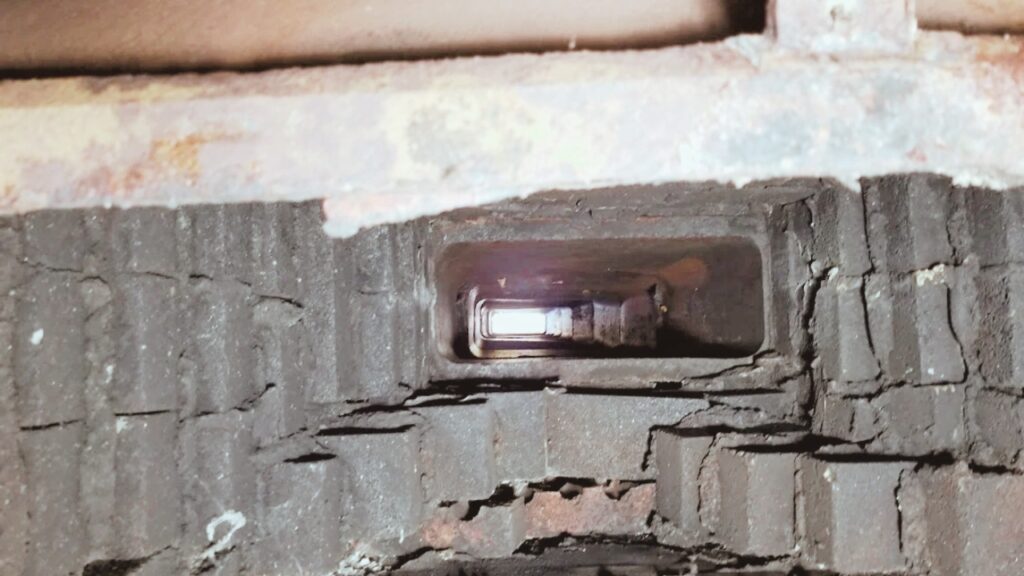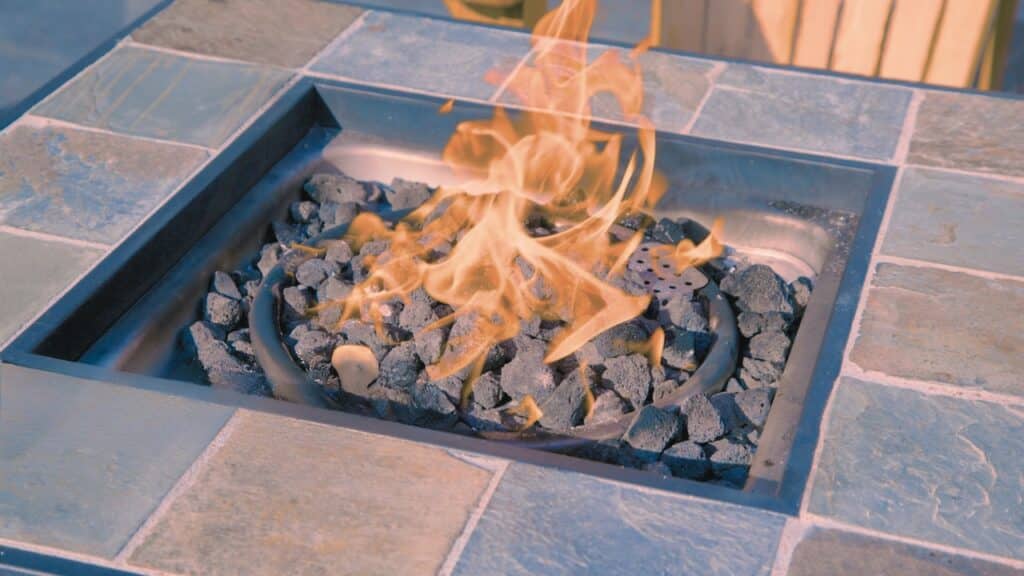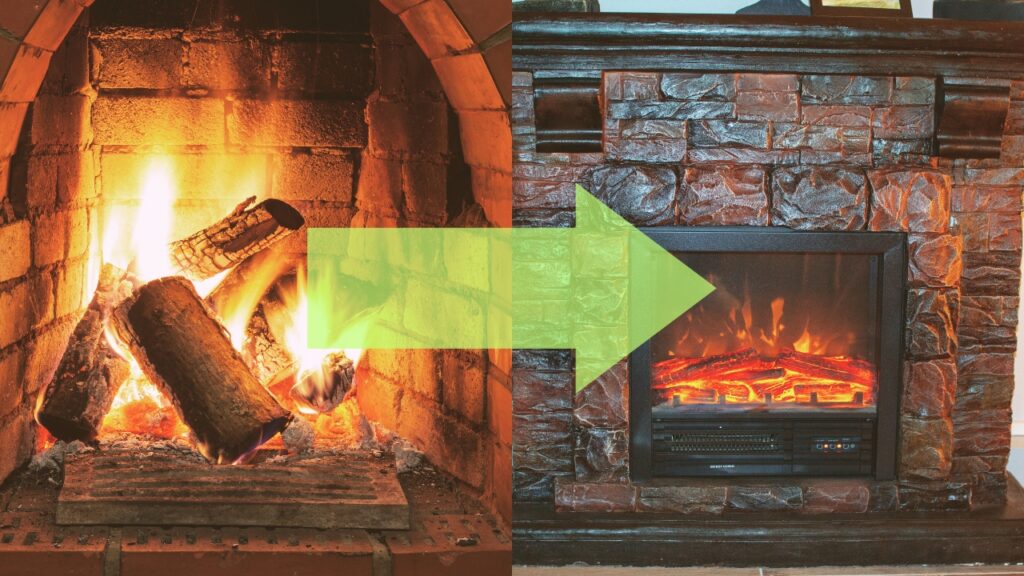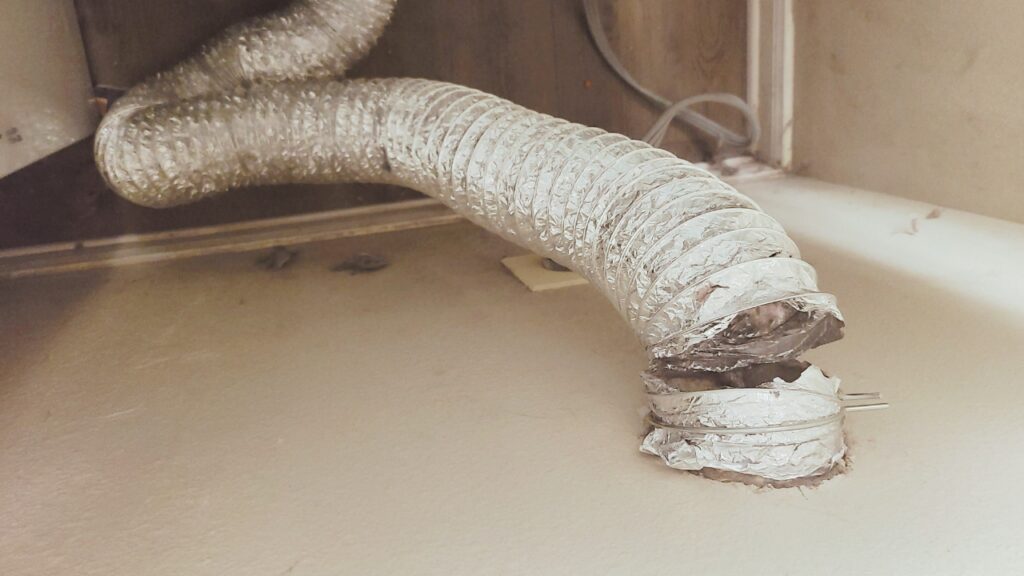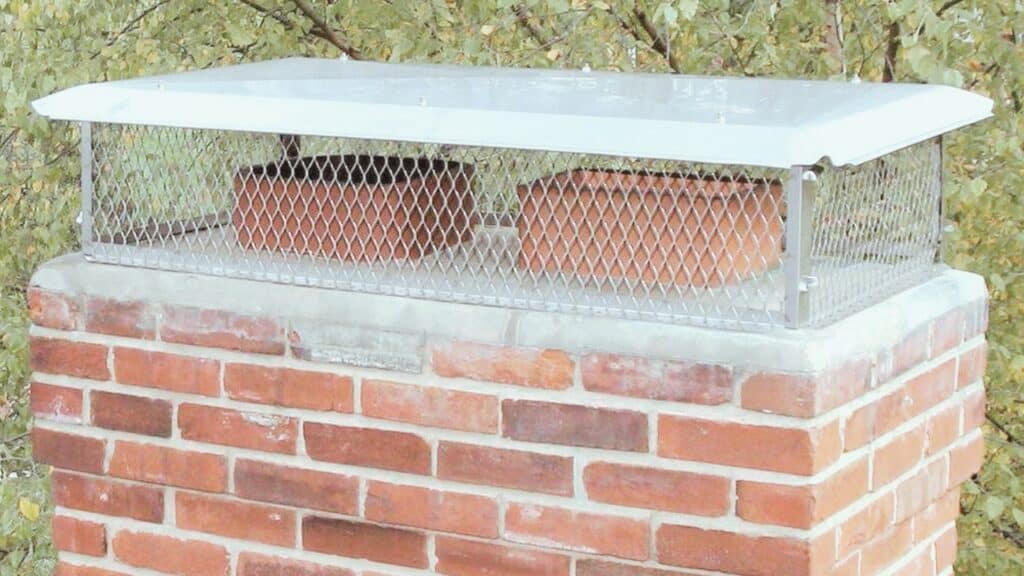Ah, the joys of winter—hot chocolate, cozy fires, and…smoke smell lingering in your house?
No one wants to breathe in the smoky aroma from their fireplace all day long, but if your home has recently been filled with the scent of an accidental campfire, don’t worry! We will show you how to get rid of fireplace smoke smell in house.
Why Does My House Smell Like Smoke From The Fireplace?
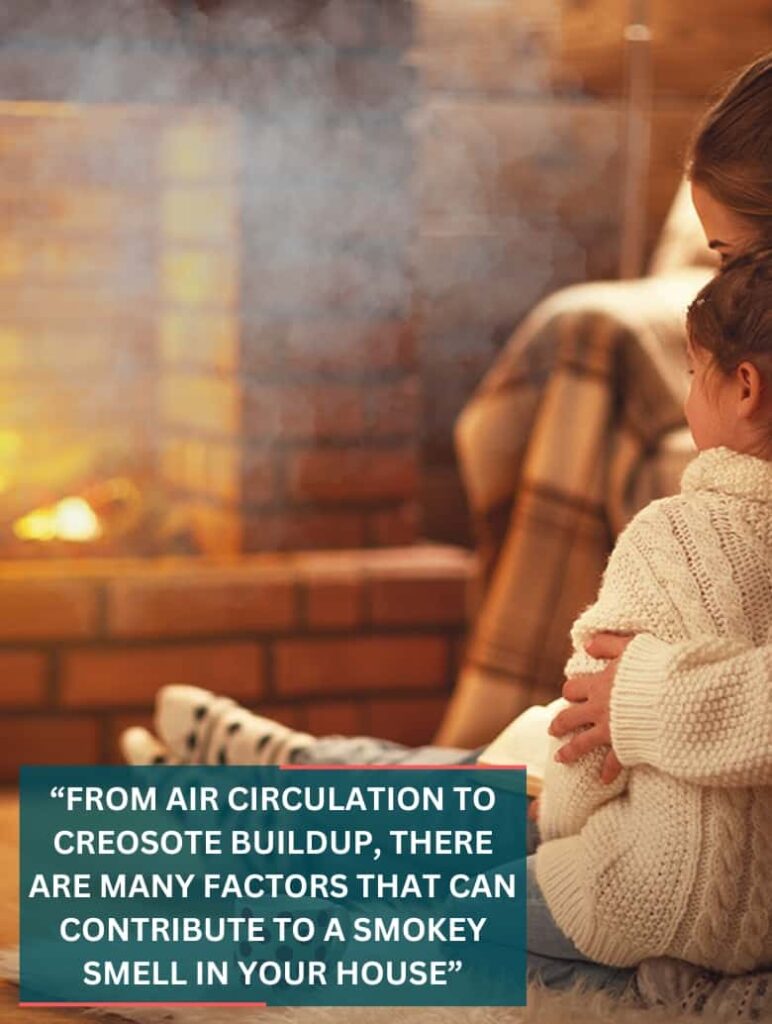
From air circulation to creosote buildup, there are many factors that can contribute to a smokey smell in your house. Here are a few of the most common causes:
Dirty Chimney
Even if your fire isn’t producing too much smoke, a dirty chimney may be the root of all trouble. Any debris and animal nests built up inside can block airflow—forcing the particles out into the living room and dousing your entire home in a smoky scent.
——
Do You Need to Hire Chimney & Fireplace Expert?
Get free quotes from qualified experts near you. No commitment required!
——
A Broken Chimney Flue
What’s worse than a dirty chimney? A broken one. If your chimney flue is cracked or malfunctioning, smoke will simply escape in the wrong direction, often right into your house’s air circulation system.
According to the U.S. EPA, around 70% of the smoke from chimneys can re-enter your home. This isn’t just very smoky, but also very dangerous. From carbon monoxide poisoning to asthma flare-ups, the risks of leaving something like this unchecked are scary.
Creosote Residue
Creosote is a black, sooty material that builds up inside fireplaces and chimneys over time. It happens when the wood particles and gasses released during burning don’t move up the chimney quickly enough – so they condense on its walls and form a sticky, highly flammable substance. It’s a common culprit behind smokey odors during the summer months.
But creosote isn’t only a fire hazard – it can put your health at risk, too. From rashes and eye irritation to respiratory problems and even cancer (in severe cases), creosote exposure should not be taken lightly.
Negative air pressure
Your ventilation system can push smoke particles back into the room, leading to stale smells. This generally occurs when a room has lower air pressure than the outside, allowing particles to move from outdoors to indoors (and vice versa).
To combat this issue with the fireplace, open a window or, if you have an air exhaust vent setup, have it inspected by a professional.
Embers in the Fireplace
Ashes, coals, and embers can linger in the fireplace for a while. As they smolder away, their smoke particles will fill your entire house.
If you don’t plan to light a fire again soon, be sure to use a fire grate and shovel all the coals to make sure your fireplace is clean.
Choose Your Firewood Carefully
Are your logs damp, wet, or moldy? When they are burned, these types of logs create an especially smoky scent that’s difficult to remove.
It might sound fancy, but seasoning wood is really just making sure your logs have been dried properly before burning them in the fireplace.
Is It Dangerous If Your House Smells Like Smoke From a Fireplace?
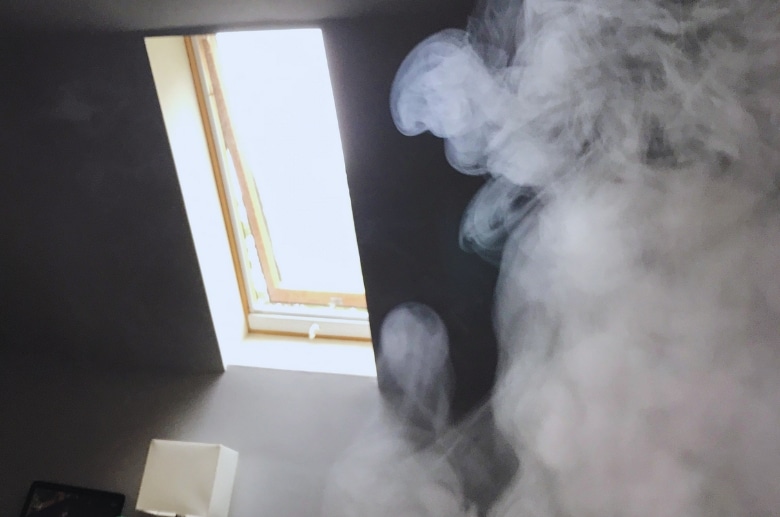
Yes! Apart from the fire risks, smoke that lingers in the house for too long can also have adverse health effects. Tiny particles from wood-burning stoves and fireplaces contain a mixture of harmful gases. These can cause asthma attacks, bronchitis, heart and lung disease, and even lead to premature death.
Did you know that according to the National Fire Protection Association, wood stoves cause over 4,000 residential fires every year? Or that 87% of residential building heating fires are confined to chimneys, flues, or flue burners?
Failure to clean chimneys regularly is the leading factor contributing to home heating fires. It’s important to inspect your fireplace once a year, clear all creosote and debris buildup, replace the flue if necessary, and repair broken joints.
This isn’t just for wood-burning fireplaces; The same rules apply to gas fireplaces. While they’re known for being less dangerous than wood-burning ones, gas fireplaces can smell a bit off if not taken care of properly.
How To Get Rid Of Fireplace Smoke Smell In House
We all want to come home to a pleasant, non-smoky-smelling house. Fortunately, removing the smell of fireplace smoke isn’t as hard as you think. Here are some tips and tricks to get rid of fireplace smoke smell in house:
1. Clean Your Fireplace
When was the last time you swept out your fireplace? Creosote buildup, ashes, embers, and smoldering logs are all notorious for creating a smoke odor. Not to mention the dust, dirt, and grime that comes with regular use of a fireplace—all of which can lead to a smoky scent in the home.
Start by cleaning up your fireplace: scrubbing down walls with soapy water and using a wire brush to remove any creosote residue stuck in hard-to-reach places.
Make sure all the ashes and embers are completely out of your fireplace if you won’t be busy using it in the immediate future. These can take a while to cool down, and the heat from them can spark up an accidental fire.
——
Do You Need to Hire Chimney & Fireplace Expert?
Get free quotes from qualified experts near you. No commitment required!
——
2. Repair Your Chimney
Is your chimney in proper working order? When was the last time it was inspected? Decay and mildew, along with broken or cracked bricks, may all cause smoke to redirect back into your house.
Schedule a chimney sweep ASAP to repair the damage. It’s not just an effective way to get rid of smoky smells but also a safety measure. An early call to a chimney professional could end up helping you avoid major repairs down the line. Your wallet will thank you!
3. Use a Charcoal Filter
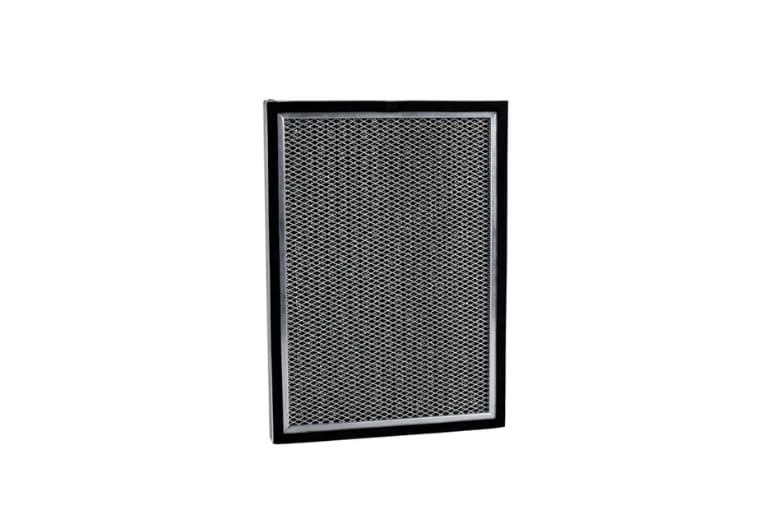
If the smell of fireplace smoke persists, try using a charcoal filter in the room where it’s strongest—this can help absorb smoky smells and freshen up the air. While it’s no substitute for a good deep clean, it’s a useful quick-fix solution.
Whether it’s an air purifier with an activated charcoal filter or a bowl with activated charcoal granules, this should do the trick.
4. Try Natural Scent Absorbers
Natural smell absorbers such as white vinegar, baking soda, and activated charcoal can all be used to get rid of smoky smells in your house. Start by placing bowls of white vinegar around the room with smoke damage—the odor should dissipate after a few hours.
You can also try sprinkling baking soda over furniture and upholstery and leave bowls of it around the room for several days to absorb any smoke odors.
5. Use Odor-Reducing Sprays
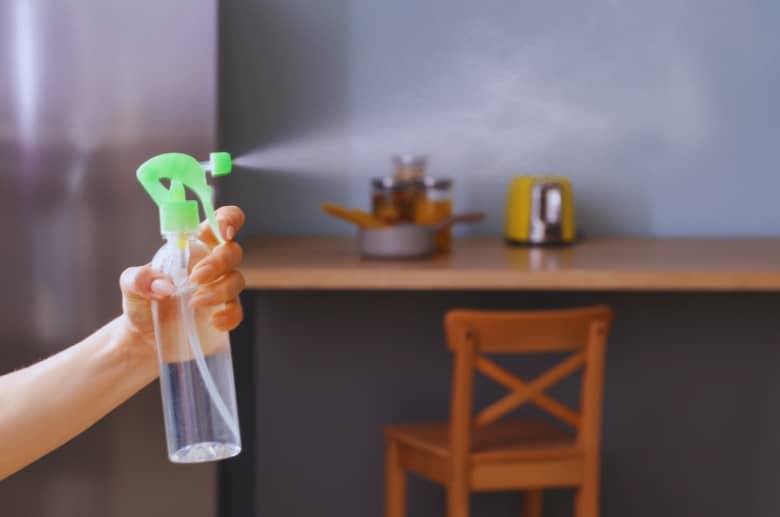
If the natural route isn’t quite cutting it, consider investing in an odor-reducing spray such as Febreeze. It contains a chemical compound called cyclodextrin. This works like a magnet to absorb odors in the air, so you never have to worry about pesky smoke smell again.
6. Air Out the House
This should be a no-brainer—when the weather is nice, open up the windows and curtains to circulate fresh air throughout your home. This should help disperse some of the smoky smells in your house naturally.
And if you have an HVAC system or ductwork in your home, it’s a good idea to get them professionally cleaned too. Check the filters and vents for buildup, as this could be contributing to the smoky odor in your home, and replace them if necessary. While it won’t completely remove the odors, it can help lessen their intensity.
7. Install a Fireplace Door
Have you ever thought about adding a door to your fireplace? It can prevent smoke and odors from escaping, along with preventing sparks from flying into the room. This way, you can light a fire in the winter without worrying about smoky odors permeating your house.
8. Close the Damper
As a rule of thumb, the damper should be open when you have a fire going and closed when no fire is burning. An open damper means the smoke and carbon monoxide will flow up the chimney and out of your living space while a closed damper with no fire will prevent downdrafts.
If you have a common source of smoky smell in winter, consider installing an energy-efficient insulated flue sealant. It’s one way to rid your house of smoke smells during the off months.
9. Hire a Professional
Who better to help check the fireplace and its components than a professional? A chimney sweep is trained to detect any weird fireplace odors in your home and come up with the best plan to ensure your house is free of smoke and other unpleasant scents.
They are also skilled at cleaning out creosote buildup and other materials that can cause smoke and general discomfort.
Final Words
The good old winter season certainly has its charm, but when our houses linger with the smell of smoke from burning wood or coal, there’s a major problem.
Knowing how to get rid of fireplace smoke smell in house isn’t always the best solution—solving the problem at its root should be your top priority. A pro chimney inspection can make all the difference in preventing smoky odors and keeping your family safe from gases like carbon monoxide.
Fireplace smoke smell—be gone!

